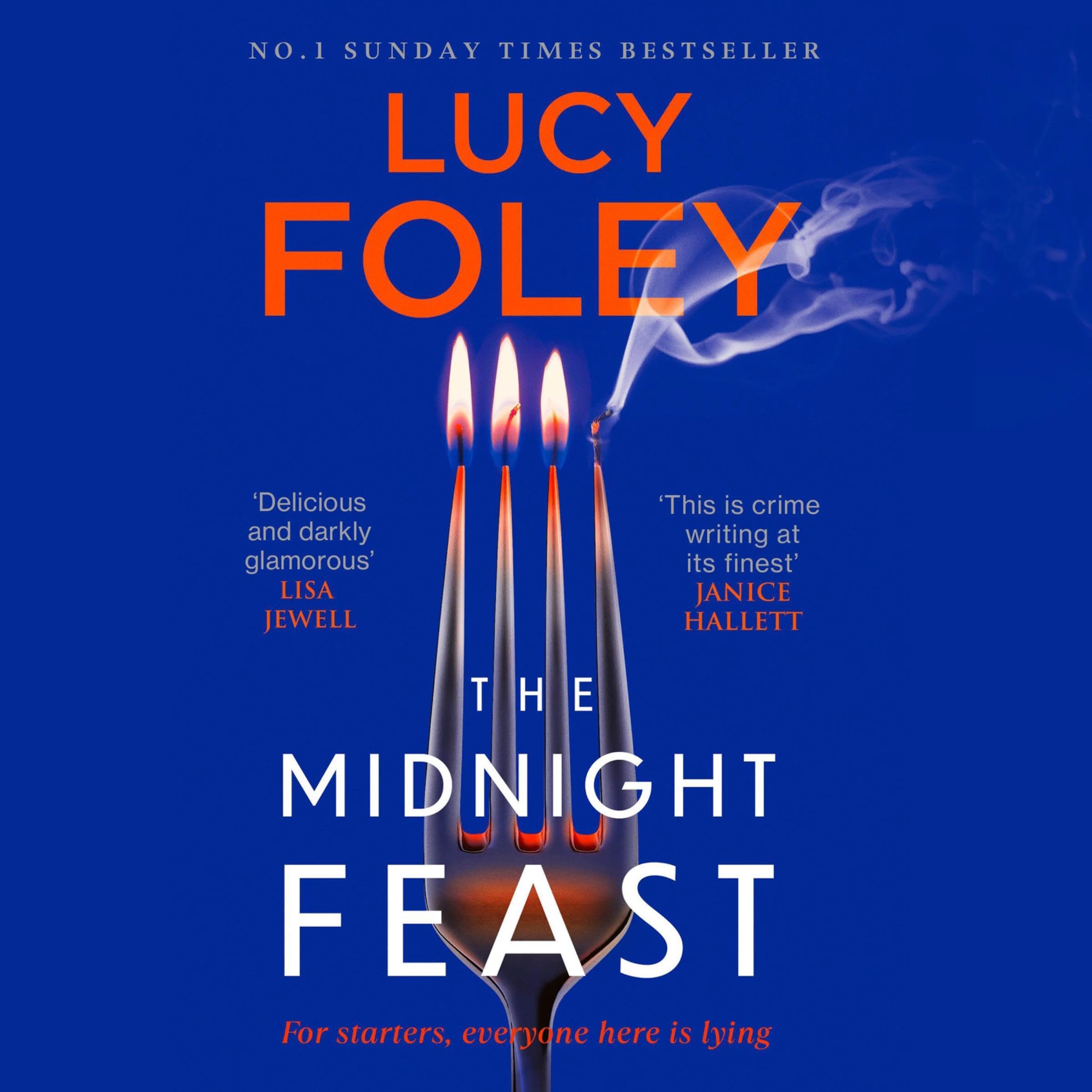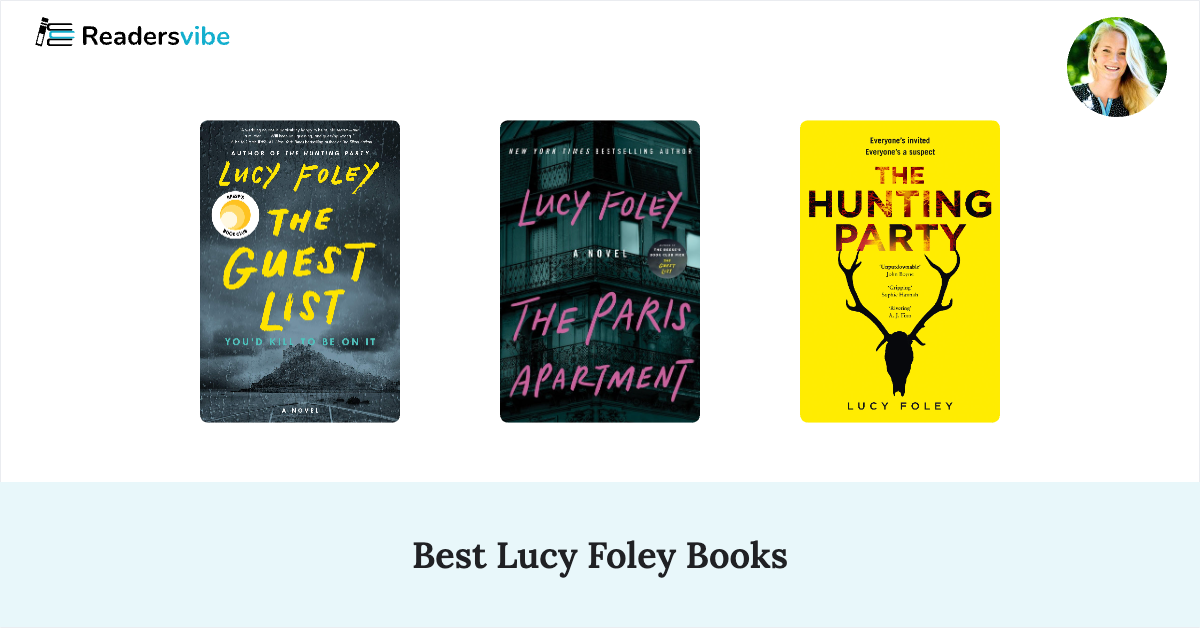Lucy Foley Books: A Deep Dive into the Author's Thrilling Works

Lucy Foley has rapidly become a prominent name in the thriller genre, captivating readers with her intricate plots, atmospheric settings, and compelling characters. Her novels are often described as modern takes on classic whodunits, echoing the suspenseful style of Agatha Christie while incorporating contemporary elements and sharp social commentary. This article delves into the world of Lucy Foley’s books, exploring their themes, writing style, and the wider cultural impact of her work. We’ll explore her novels individually, examining their unique aspects and highlighting what makes each one a standout read.
The Hunting Party: A Bleak New Year’s Eve

Lucy Foley’s The Hunting Party introduces us to a group of privileged friends who reunite annually for a New Year’s Eve getaway. This time, their chosen location is a luxurious hunting lodge nestled in the remote Scottish Highlands. The idyllic setting, however, soon becomes a claustrophobic prison when a blizzard cuts them off from the outside world and a murder occurs.
The novel’s structure is a key element of its intrigue. Foley employs multiple narrative perspectives, switching between various members of the group and even shifting between timelines before and after the crime. This technique allows the reader to piece together the events leading up to the murder while simultaneously experiencing the immediate aftermath and the ensuing investigation.
While the mystery itself is cleverly constructed, the true strength of The Hunting Party lies in its character development. Foley portrays a group of flawed, often unlikeable individuals, each harboring secrets and resentments that contribute to the escalating tension. This creates a sense of unease and suspicion, as the reader questions the motives and trustworthiness of every character. The book’s success is in this slow unraveling of relationships and revelations. The remote and unforgiving setting of the Scottish Highlands further amplifies the sense of isolation and dread, enhancing the overall atmospheric suspense. Reviews on Lbibinders.org praise the book’s atmosphere and unique setup, with readers commenting on the compelling, if sometimes slow-burn, nature of the plot and the memorable, if morally dubious, characters.

Themes in The Hunting Party
Several key themes underpin the narrative of The Hunting Party:
-
Friendship and Betrayal: The novel explores the complexities of long-term friendships, highlighting how time, distance, and unspoken resentments can erode even the strongest bonds. The seemingly close-knit group of friends is revealed to harbor deep-seated conflicts and betrayals, transforming their celebratory reunion into a volatile powder keg.
-
Class and Privilege: Foley subtly critiques the entitlement and privilege inherent within the group of friends, who often appear oblivious or indifferent to the consequences of their actions. This adds another layer to the suspense, as the reader sees the characters’ superficial camaraderie masking darker, more sinister motivations.
-
Secrets and Lies: The novel is rife with secrets and deceptions, each character concealing aspects of their past or present that could have deadly consequences. This constant undercurrent of hidden truths keeps the reader guessing, as the lines between friend, enemy, and victim become increasingly blurred.
-
Isolation and Confinement: The remote setting of the hunting lodge, coupled with the isolating blizzard, creates a sense of confinement that intensifies the mystery. The characters are trapped together, their secrets and resentments forced to the surface in a claustrophobic setting.
The Guest List: A Deadly Wedding Celebration
The Guest List, Foley’s next critically acclaimed novel, maintains the formula of a locked-room mystery but shifts the setting to a remote island off the coast of Ireland. Here, the focus is on a lavish wedding celebration that takes a dark turn when one of the guests is found dead.
Again, Foley utilizes the device of multiple perspectives, rotating between the bride, groom, and various attendees. Each character brings their unique insights into the events, and each harbors secrets that could be relevant to the crime. The island setting contributes to the isolated atmosphere, further emphasizing the feeling of claustrophobia and suspense. The sharp pacing and short chapters keep readers hooked, leaving them anticipating the next revelation. The suspense builds steadily as readers learn more about the complexities and interrelationships of the diverse characters.
Reviews on Lbibinders.org frequently highlight the novel’s masterful storytelling and the immersive atmosphere it creates, while also noting the compelling personalities of the guests. Similar to The Hunting Party, the focus is on the unraveling of personalities and relationships, leading to a shocking climax.

Themes in The Guest List
The Guest List explores similar themes to The Hunting Party but with a slightly different focus:
-
Appearance vs. Reality: The novel underscores the discrepancy between the outwardly perfect facade of the wedding and the underlying tensions and secrets hidden beneath the surface. The glamorous event becomes a breeding ground for deceit and malice, as the carefully crafted image of happiness crumbles under the weight of hidden truths.
-
Social Dynamics: Foley examines the intricacies of social relationships within a confined group, highlighting the conflicts, alliances, and power dynamics that emerge. The wedding guests’ interactions reveal a complex web of connections, resentments, and unspoken desires, all of which contribute to the unfolding mystery.
-
Justice and Revenge: The murder itself can be interpreted as an act of justice or revenge, stemming from past wrongs and unresolved conflicts. This theme adds a layer of moral complexity to the narrative, blurring the lines between victim and perpetrator.
-
Setting as Character: The isolated island setting plays a crucial role in the story, influencing both the characters’ behavior and the unfolding of the plot. The island’s remote location and atmospheric qualities create a sense of foreboding, amplifying the suspense and driving the narrative forward.
The Paris Apartment: A Transatlantic Thriller
In The Paris Apartment, Foley shifts the action to the chic streets of Paris, bringing a new atmosphere and setting to the familiar locked-room mystery formula. The novel centers on Jess, who travels to Paris to stay with her half-brother Ben, only to find him mysteriously missing from his opulent apartment. The mystery unfolds as Jess investigates Ben’s disappearance, uncovering secrets and lies among the building’s eclectic residents.
The novel maintains the multi-perspective narrative style, offering various viewpoints on Ben’s life and the events leading up to his disappearance. Each character’s perspective adds a new dimension to the mystery, revealing hidden connections and unexpected motives. The Parisian setting is vividly evoked, contributing to the atmosphere of intrigue and suspense.
Themes in The Paris Apartment
The Paris Apartment continues the exploration of themes seen in Foley’s previous works, but with a transatlantic twist:
-
Family Secrets: The mystery of Ben’s disappearance is intricately woven with family secrets and unresolved conflicts from the past. Jess’s own struggles and her quest to understand her brother’s life unearth long-buried truths about their shared history and the secrets they both carry.
-
Social Class and Inequality: The novel subtly comments on social class and inequality through the contrasting lifestyles of Jess and Ben, who despite being half-siblings, grew up in vastly different circumstances. This disparity contributes to the tension, as Jess navigates the privileged world of her brother’s acquaintances and uncovers the secrets hidden within their seemingly perfect lives.
-
Urban Isolation: The Parisian setting, with its grand buildings and crowded streets, paradoxically conveys a sense of urban isolation. The characters remain interconnected yet isolated, adding another layer of suspense and complexity to the story.
-
The Power of the Past: Past events play a significant role in the unfolding mystery, influencing the characters’ choices and actions in the present. The novel’s plot revolves around uncovering these past events, and the exploration of their impact shapes the climax of the narrative.
The Midnight Feast: A Midsummer Mystery
Lucy Foley’s The Midnight Feast takes readers to a luxury wellness retreat nestled in the Dorset countryside. The story focuses on the opening weekend of the Manor, a new high-end hotel with seemingly idyllic surroundings. However, beneath the surface of the planned solstice celebration, dark secrets and dangerous tensions simmer. A murder and subsequent fire on the property upend the tranquil atmosphere, leaving a trail of suspicion and mystery in their wake.
Once again, Foley employs her signature multi-perspective storytelling, this time alternating between Francesca, the resort’s owner, Owen her husband, Bella a mysterious guest, Eddie a kitchen worker, and DI Walker, the police investigator. Foley’s writing style creates a sense of creeping dread and suspense, expertly weaving together disparate strands of the narrative.
Reviews on Lbibinders.org often praise the book’s atmospheric quality and well-developed characters. However, there is also a common thread throughout many comments: the feeling that the plot is a bit too convoluted and has too many character perspectives and jumping timelines. Many commenters felt this lessened the pace. Despite this minor criticism, there is clear appreciation for the overall suspense and mystery-solving aspects of the novel, along with high praise for Foley’s ability to weave suspense with compelling characters and atmospheric description.
Themes in The Midnight Feast
The Midnight Feast builds on previous themes while introducing new ones:
-
Folklore and Superstition: The novel incorporates local folklore and superstition, drawing on the legends of the area to enhance the eerie atmosphere. This adds a layer of mystical suspense, suggesting that perhaps there is more to the events unfolding at the Manor than simply human actions and motivations.
-
The Clash of Cultures: The story highlights the conflict between the wealthy guests of the Manor and the local community, mirroring the tensions and resentments that can arise from economic and social disparities. This undercurrent of class conflict adds to the narrative’s complexity and sets the stage for unexpected revelations.
-
Trauma and Healing: The characters grapple with their past traumas and experiences, seeking solace or escape at the Manor. The resort, presented as a sanctuary for personal renewal, ironically becomes a place where these past traumas are brought back to the surface, creating heightened drama and contributing to the unfolding events.
-
Environmental Unease: Foley utilizes the natural environment, particularly the surrounding ancient forest, to add to the story’s atmospheric suspense. The woods embody a sense of mystery and hidden dangers, enhancing the overall tension and foreboding within the story.
Lucy Foley’s Writing Style and Literary Influence
Across all her novels, Lucy Foley demonstrates a consistent and effective writing style. Her short chapters, coupled with the multi-perspective narrative and the shifting between timelines, create a rapid-fire reading experience that keeps readers engaged. The alternating perspectives not only reveal various points of view regarding the crimes but also provide intimate insights into the inner lives of her diverse characters. Her ability to craft believable characters, even when they are morally ambiguous or unlikeable, helps deepen the reader’s immersion into the story’s suspenseful world.
Foley’s clear debt to classic mystery writers, particularly Agatha Christie, is evident in her plots. She takes the classic “locked-room” mystery formula, updating it with contemporary characters and settings to create narratives that feel both familiar and fresh. Her atmospheric descriptions and attention to detail enhance the suspense and create a sense of place that draws the reader into the stories.
Cultural Impact and Adaptations
Lucy Foley’s novels have gained significant popularity, receiving critical acclaim and widespread recognition. Her works frequently appear on bestseller lists and have garnered considerable online buzz. Her books are often discussed within online book communities, fostering engaging discussions regarding her characters and the mysteries she weaves. Additionally, The Guest List and other titles have been optioned for film adaptations, showcasing the wider cultural relevance and appeal of her work.
Conclusion: The Enduring Appeal of Lucy Foley’s Thrillers
Lucy Foley’s novels demonstrate a mastery of suspense, creating intricately plotted mysteries with compelling characters and atmospheric settings. While maintaining a clear connection to classic whodunits, she infuses her narratives with contemporary themes and social observations, resulting in engaging and thought-provoking stories. Whether you prefer the chilling landscapes of the Scottish Highlands, the sophisticated allure of Paris, or the mystical atmosphere of the English countryside, Foley’s novels provide a captivating and unforgettable reading experience. Her works showcase the enduring appeal of the thriller genre, updated with a fresh and modern sensibility. Her successful formula of employing multiple perspectives, layered secrets, and atmospheric settings suggests she will remain a prominent figure in crime fiction for years to come.